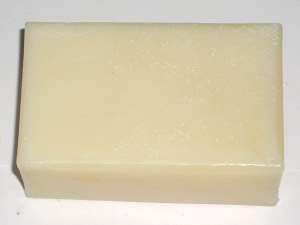____________olive oil____soapmaking____________
What is olive oil?
Olive oil is "fruit oil" that is acquired by cold pressing olives. Each time the olive fruit is pressed, different grades of olive oil are achieved.
During the first light pressing, the olive oil is considered to be extra virgin or virgin and is regarded as the highest quality grade for cooking.
A second pressing, with more pressure then the first, yields refined "grade A" olive oil and is considered to be a lower grade because of the presence of free fatty acids.
After the second pressing, it's usually no longer possible to obtain any oil through adding more pressure to the leftover fruit so a solvent called hexane is usually used to remove the remaining oil from the olive. This oil is considered "grade B" olive oil and is, of course, an even lower grade with even more free fatty acids.
Finally, pomace oil is the lowest grade olive oil of all as it is the oil from the pomace (pits) of the olive. Unlike in cooking where you always want to use the highest grade possible, you can use the lower grade olive oil for soap making without any problems! In fact, some people prefer the lower grades because of its quicker trace. Surprised? Well, to be honest with you, so was I. Believe it or not, in olive oil soap making, we can actually break the rule of always using the best ingredients without any negative consequences!
Olive oilVarious pressings of olive fruit… grade of oil varies with subsequent pressings (pomace oil is made from pulp residue and pits and contains a higher percentage of unsaponifiables)A humectant; makes a very mild, gentle soap; soap made from 100% olive oil is good for sensitive or baby’s skin

 Keep children and pets out of your work area as it is especially dangerous to have them around the lye.
Keep children and pets out of your work area as it is especially dangerous to have them around the lye. HOW MUCH CASTOR OIL TO USE
HOW MUCH CASTOR OIL TO USE  found out early on there is no sense making it without a stick blender
found out early on there is no sense making it without a stick blender



